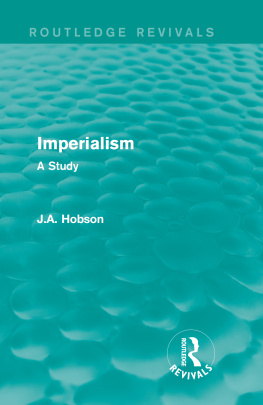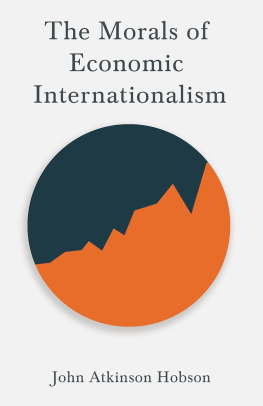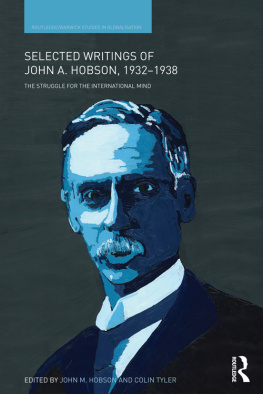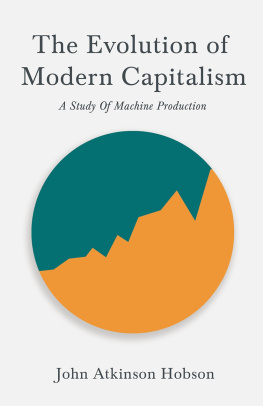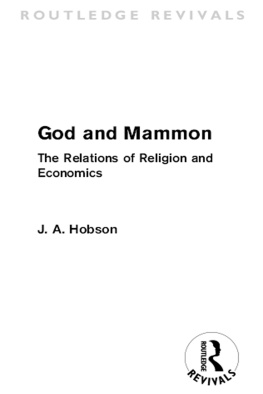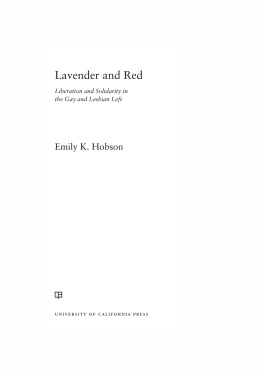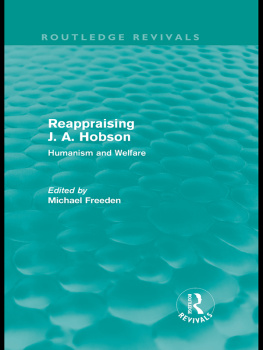J. A. Hobson - Imperialism: A Study
Here you can read online J. A. Hobson - Imperialism: A Study full text of the book (entire story) in english for free. Download pdf and epub, get meaning, cover and reviews about this ebook. year: 2016, publisher: Routledge, genre: Politics. Description of the work, (preface) as well as reviews are available. Best literature library LitArk.com created for fans of good reading and offers a wide selection of genres:
Romance novel
Science fiction
Adventure
Detective
Science
History
Home and family
Prose
Art
Politics
Computer
Non-fiction
Religion
Business
Children
Humor
Choose a favorite category and find really read worthwhile books. Enjoy immersion in the world of imagination, feel the emotions of the characters or learn something new for yourself, make an fascinating discovery.
- Book:Imperialism: A Study
- Author:
- Publisher:Routledge
- Genre:
- Year:2016
- Rating:5 / 5
- Favourites:Add to favourites
- Your mark:
- 100
- 1
- 2
- 3
- 4
- 5
Imperialism: A Study: summary, description and annotation
We offer to read an annotation, description, summary or preface (depends on what the author of the book "Imperialism: A Study" wrote himself). If you haven't found the necessary information about the book — write in the comments, we will try to find it.
Imperialism: A Study — read online for free the complete book (whole text) full work
Below is the text of the book, divided by pages. System saving the place of the last page read, allows you to conveniently read the book "Imperialism: A Study" online for free, without having to search again every time where you left off. Put a bookmark, and you can go to the page where you finished reading at any time.
Font size:
Interval:
Bookmark:

Routledge Revivals
Imperialism
Originally published in 1902, this study expands on the ideas of imperialism which were a key focus of many countries in the early twentieth century, particularly in Great Britain. Hobson starts by outlining the economic origins of imperialism with an analysis on methodology and results, before delving into the theory and practice of Imperialism and its political significance at the turn of the century. This edition was first published in 1938 and was completely revised to reflect the changes that occurred in world history from first publication. This title will be of interest to students of Politics or History.
Imperialism
A Study
J.A. Hobson

First published in 1938
by George Allen & Unwin Ltd
This edition first published in 2016 by Routledge
2 Park Square, Milton Park, Abingdon, Oxon, OX14 4RN
and by Routledge
711 Third Avenue, New York, NY 10017
Routledge is an imprint of the Taylor & Francis Group, an informa business 1938 J.A. Hobson
All rights reserved. No part of this book may be reprinted or reproduced or utilised in any form or by any electronic, mechanical, or other means, now known or hereafter invented, including photocopying and recording, or in any information storage or retrieval system, without permission in writing from the publishers.
Publishers Note
The publisher has gone to great lengths to ensure the quality of this reprint but points out that some imperfections in the original copies may be apparent.
Disclaimer
The publisher has made every effort to trace copyright holders and welcomes correspondence from those they have been unable to contact.
A Library of Congress record exists under LC control number: 06040961
ISBN 13: 978-1-138-64479-3 (hbk)
ISBN 13: 978-1-315-62852-3 (ebk)
IMPERIALISM
A Study
by
J. A. HOBSON

First published in 1902
Second edition 1905
Third entirely revised and reset edition
1938
ALL RIGHTS RESERVED
Made and Printed in Great Britain by C. Tinling & Co., Ltd.
Liverpool, London and Prescot.
S O momentous have been the occurrences in world history during the past thirty years, so numerous the changes in national policies and sentiments that it may seem an act of impertinence to republish a book dealing with these issues as they presented themselves at the opening of the century. Nevertheless it may be worth while showing that the chief perils and disturbances associated with the aggressive nationalism of to-day, though visibly inflamed and accelerated by the Great War and the Bad Peace, were all latent and discernible in the world of a generation ago, and find their economic, political and moral roots in the foreign policy of the governments of the advanced industrial nations. Recent events have, indeed, done much to clarify the respective parts played in modern Imperialism by the interactions and conjunctions of the different theories, interests and emotions that inspire aggressive national activities.
Before proceeding to make good this statement it may be convenient here to rehearse in bare terms the main argument of this book, and then to discuss such changes and modifications of the earlier argument as the current of recent history appears to demand.
That argument was to the effect that whereas various real and powerful motives of pride, prestige and pugnacity, together with the more altruistic professions of a civilising mission, figured as causes of imperial expansion, the dominant directive motive was the demand for markets and for profitable investment by the exporting and financial classes within each imperialist regime. The urgency of this economic demand was attributed to the growing tendency of industrial productivity, under the new capitalist technique of machinery and power, to exceed the effective demand of the national markets, the rate of production to outrun the rate of home consumption. This was not, of course, the whole story. The rising productivity of industry required larger imports of some forms of raw materials, more imported foods for larger urban populations, and a great variety of imported consumption goods for a rising standard of living. These imports could only be purchased by a corresponding expansion of exports, or else by the incomes derived from foreign investments which implied earlier exports of capital goods.
But with these qualifications in mind, it is nevertheless true that the most potent drive towards enlarged export trade was the excess of capitalist production over the demands of the home market. Now, since it is manifest that everything that is produced belongs to someone connected with its production, who can either consume it or exchange it for some other consumable goods, it seems at first sight unreasonable to expect that an excess of goods requires a foreign market, unless some error has taken place in the apportionment of producing power as between the different industries. But when we find that at frequent intervals there is a general excess of production beyond the current demands of the home and foreign markets, it becomes manifest that the productive power of capital has been excessively fed. This in its turn means that the processes of saving and investment have proceeded too rapidly. In other words, there has been over-saving and under-spending. For while a certain and a growing quantity of saving and production of more and better capital goods belongs to every progressive national economy, there exists at any given time, having regard to the arts of industry, on the one hand, and the arts of consumption, on the other, a right balance or equilibrium between spending and saving. It has been held by the classical school of economists that this equilibrium was necessarily maintained by the free play of natural economic laws, which would check any such tendency to over-save and over-invest as appears actually to take place. But a closer scrutiny of the motives which actuate saving show that they do not conform to the ordinary price-law. A rise or fall in the price of saving, i.e. rate of interest, though serving to distribute saving properly among the several channels of investment, does not operate to any appreciable extent to increase or diminish the total volume of saving. There is a check upon saving, but it comes too late, after a wasteful trade depression has occurred. For most saving comes from profits, dividends, rents of the owning well-to-do classes. When a trade depression is in actual course, these sources of saving are greatly diminished and though for a time some actual over-saving lies idle in banks waiting an opportunity for favourable investment, the period of bad trade is soon attended by a fall in the rate of saving below the level which a normal trade condition would justify.
Now this argument signifies that the constant impulse to push for overseas markets in normal times and the periodic slumps of national trade in the home markets, are due to a chronic tendency to try to save a larger proportion of the national income than can find a useful expression in new capital. This is not due to the folly of individual savers, but to a distribution of the general income which puts too small a share in the hands of the working-classes, too large a share in the hands of the employing and owning classes. For it is to the latter that over-saving is attributable.
Next pageFont size:
Interval:
Bookmark:
Similar books «Imperialism: A Study»
Look at similar books to Imperialism: A Study. We have selected literature similar in name and meaning in the hope of providing readers with more options to find new, interesting, not yet read works.
Discussion, reviews of the book Imperialism: A Study and just readers' own opinions. Leave your comments, write what you think about the work, its meaning or the main characters. Specify what exactly you liked and what you didn't like, and why you think so.

